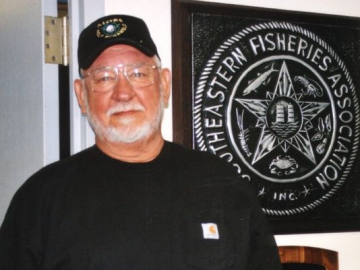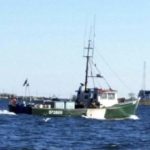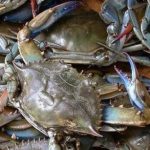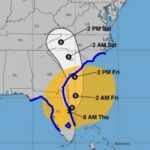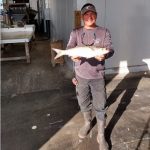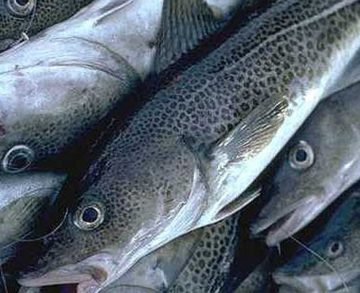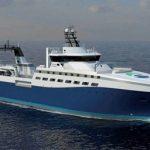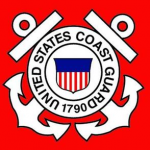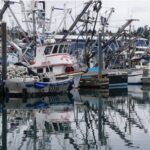Category Archives: Mid Atlantic

Maryland crabbers rescue bald eagle
As they were crabbing in the early morning Wednesday, July 18, twin brothers Christopher and Russell Payne of Easton saw something unusual flopping around in the Tred Avon River off Oxford. The closer they edged their 27-foot workboat Twice the Payne, however, they realized a male bald eagle was struggling to swim. “He looked worn out,” Chris Payne said. “He was trying to swim towards shore about 100 to 200 yards in front of the Sunset Grill.” Russell retrieved the eagle with his crab net and eased him onto the stern of their boat. The brothers kept their distance while they called the Maryland Department of Natural Resources.“He was still skittish, and we didn’t want to get close to it. He was breathing like he had run a marathon,”>click to read<16:03
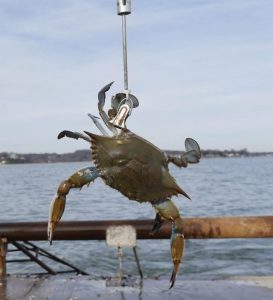
Blue crab population declines by almost 18%
The annual Blue Crab Advisory Report by the Chesapeake Bay Program and developed by the Chesapeake Bay Stock Assessment Committee, finds that the overall Chesapeake Bay blue crab population decreased by almost 18 percent from 455 million in 2017 to 372 million in 2018. The report, released last month, provides scientific analysis of the Bay’s blue crab population to help resource managers as they set blue crab fishing regulations.,, According to the report and the scientific reference points that resource managers follow for “target” (healthy) and “threshold” (border between safe and unsafe) levels, the Bay’s blue crab population is currently not depleted, nor is it being overfished. >click to read<20:12
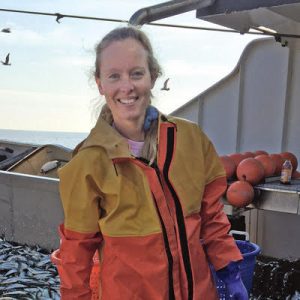
Why the fishing industry is against offshore wind farms near Ocean City
Representatives say wind farms could cause harm by driving marine wildlife away, disturbing the ocean environment and making navigation more difficult for fishers and mariners. “Now with the current offshore wind leasing process, we have these fishing grounds being sold right out from under us,” said Meghan Lapp during a recent presentation to the Ocean City Town Council. But marine biologists and wind farm officials say the impact won’t be that severe. “I think they took an emotional approach to the problem. … So there was some degree of misinformation,” said Salvo Vitale, general counsel for U.S. Wind, one of the offshore wind energy companies involved in the Maryland project. The town’s officials feel very strongly that this project was misrepresented to them because the size of the wind turbines has increased since the initial proposal,,, >click to read<10:18
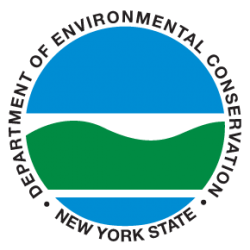
DEC Announces Public Information Sessions to Modernize and Reform State’s Commercial Fishing Licensing System
New York State Department of Environmental Conservation (DEC) Commissioner Basil Seggos announced today that the agency is holding a series of meetings across the State’s Marine and Coastal District in July and August to gather feedback from key stakeholders about the State’s current commercial fishing licensing system and ideas for reforms to modernize and improve the program. In March 2018, DEC retained the services of an expert marine fisheries consultant, George LaPointe, who will facilitate the meetings to be held in Brooklyn, East Setauket, Freeport, Southampton, Staten Island, Southold >click to read<19:05

Sam Parisi: HR-200 was passed in the House and will now move on to the Senate. Push Your Senators!
There has been a lot of those for and against the bill, and after reading the forty-nine pages of the bill and trying to consume it, I have come to the conclusion that over all it is a move in the right direction. The enactment of the 200 mile limit was needed because of foreign fisherman from other countries were destroying our Fisheries and our government at that time had no jurisdiction, Japanese and Russian Factory Ships were invading our waters using small mesh netting scooping up small fish like haddock, cod, flounder, and other bottom dwelling species. I say this because while fishing for whiting off the Canyons near Cape Cod I saw in front of me and fishing along side of me, those factory ships. >click to read<17:48
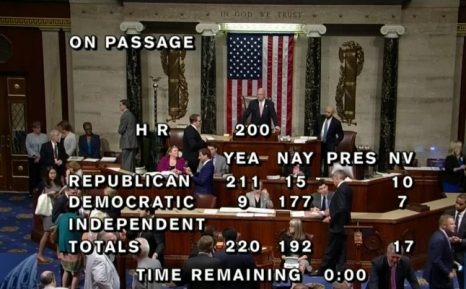
Opinion: Fisheries act is a chance to build trust
There’s a little something for everyone to hate in the House’s proposed renewal of the Magnuson-Stevens Act. Commercial fishermen feel it gives too much to recreational fishermen and environmentalists. Recreational fishermen say it goes too easy on their commercial counterparts, and the environmental lobby says the measure, which passed the House last week along largely partisan lines, will undo years of progress in restoring fish stocks. We are left with what we have had for decades — a pitched battle among competing interests, with no end in sight. Congress must do better to help guarantee that the science behind management decisions is sound and easily understandable. >click to read<19:25

Offshore Wind Projects’ Impact on Fishing Grounds off the Ocean City Coast Discussed
After hearing a strong presentation from a noted expert on the impacts of wind farms on commercial fishing, the Mayor and Council seem inclined to strengthen opposition to the wind farms off the resort coast in general.,, Monday’s presentation was spearheaded by Meghan Lapp, who is the fisheries liaison for Seafreeze Ltd., a Rhode Island-based company that is the largest producer of sea-frozen fish on the east coast. The highly-decorated Lapp also serves on numerous fishery management councils up and down the east coast including the mid-Atlantic region. Joining Lapp during Monday’s presentation to the Mayor and Council were a handful of local commercial fishermen, most of whom have been working the seas off the Ocean City coast for generations. >click to read<09:46
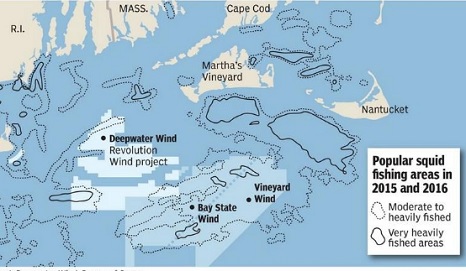
Now We’re Talking!! BOEM dressed down, wind farm companies get an earful at a meeting
Federal officials in charge of leasing ocean bottom land to offshore wind farm companies got an earful at a meeting with commercial fishermen Wednesday – and much of it was R-rated. There isn’t merely significant opposition to offshore wind farms; there is 100-percent agreement among the fishermen that the wind turbines will eventually put them out of business.,, Deepwater Wind, which has a project slated off the coast of Montauk called South Fork Wind and runs the Block Island Wind farm, was the subject of much of the ire and criticism,,, Ryan Fallon said he has spent his life on the water. “Everyone is against [the wind farms]. This is my life, my daughter’s life. I almost brought her here so you could look her in the eyes,” said Fallon, whose father was a commercial fisherman and bought him his first boat. “I’ve been doing this since I was 12. I’ll die before I let you take it away.” >click to read<20:37
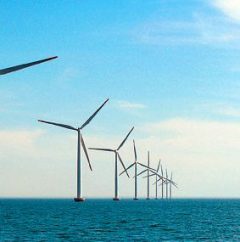
Deepwater Wind Offers Offshore Information, Fishermen Want Compensation
The Providence-based company recently announced a program to inform fishermen of where and when construction and other work occurs at the site of three wind facilities and their electric cables. The offshore wind developer hired liaisons to offer dockside information to fishermen at main fishing ports such as New Bedford, Mass., Point Judith, and Montauk, N.Y. Daily activity will be posted online about surveys, construction, and maintenance work. The updates will also be broadcast twice daily on boating radio channels, according to Deepwater Wind. Bonnie Brady, president of the Long Island Commercial Fishing Association, said the outreach by Deepwater Wind is window dressing. Deepwater Wind is “not doing anything at all. it’s a big, giant schmooze,” she said.,, Richard Fuka, president of the Rhode Island Fishermen’s Alliance, said he speaks with fishermen daily in Point Judith and he’s hearing the fishing stocks are down around the Block Island Wind Farm. >click to read<19:53

The cost of offshore wind power: worse than we thought
A few days ago, the BBC’s Roger Harrabin mentioned a new suggestion that instead of cutting up redundant oil rigs, we should simply sink them to the bottom of the sea, where they would become artificial reefs that would encourage a flourishing of marine flora and fauna. Observant readers of his Twitter feed were of course quick to point out that this was exactly what BP had proposed for their Brent Spar platform nearly twenty years ago. At the time there was an outpouring from environmentalists, who accused the oil giant of deliberately polluting the seas.,, a recently published a paper on the potential decommissioning costs of all those offshore wind turbines that they are so keen on installing.,, costs for 34 turbines could reach £100 million ($131,654,735.40) >click to read<09:44
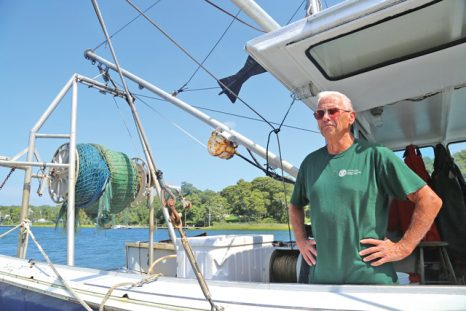
New York Commercial fishermen hit with two-week fluke fishing closure
The closure began Sunday, and when it reopens Aug. 1, fishermen will be limited to a daily limit of 50 pounds of fluke. “That’s not even a box of fish,” said Riverhead fisherman Phil Karlin, who noted boxes are typically 60 or 70 pounds. The state Department of Environmental Conservation that enforces the federal quota restrictions notified fisherman of the closure via mail several days before, saying it was necessary to preserve fish for the fall, Mr. Karlin said. “It’s putting a hardship on all fishermen,” Mr. Karlin said. “We’ve had it tough as it is. To close it in the middle of the summer like this is not good.” >click to read<07:49
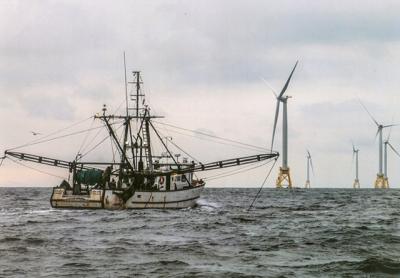
First U.S. Offshore Wind Developer Acts on Fishing Gear
U.S. offshore wind developer Deepwater Wind has adopted a first-of-its-kind procedure designed to prevent impacts to commercial fishing gear from its activities. Deepwater Wind’s Block Island Wind Farm is America’s first offshore wind farm, and the company is currently in active development on utility-scale wind farms to serve Rhode Island, Connecticut, New York, New Jersey and Maryland. The procedure was developed in close coordination with the commercial fishing industry and is based off extensive feedback from fishermen in ports up and down the Atlantic coast. Deepwater Wind believes that keeping fishermen informed is the key to preventing damage to fishing gear. >click to read<18:19

Offshore wind topic blows back onto Ocean City agenda
Offshore wind farms near Ocean City’s coast will again come up for discussion at Monday’s Town Council meeting. Meghan Lapp, a fisheries liaison for Seabreeze Seafreeze Ltd. in Rhode Island, will outline concerns with how wind farms may affect commercial fishing, according to the agenda document. The presentation will also feature local fisherman George Topping. The addition of wind farms could restrict fishing areas, according to the presentation outline in the agenda documents. Deepwater Wind and US Wind received approval in 2017 to construct two wind turbine projects off of Ocean City. >click to read<09:56

The MSA and Don Young’s partisan dilemma
“We must remain committed to the bipartisan, bicameral tradition of fisheries management,” Rep. Don Young wrote last Sunday, “and my legislation accomplishes just that.” He was referring to the reauthorization of Magnuson-Stevens Act. But when the House passed it on Wednesday, only nine Democrats voted in favor of it. Which explains why, in the same opinion piece, Young complained about “the hyper-partisan mentality” his “Democratic colleagues subscribe to.” Like the breakup of a marriage, there are two sides to this story. The reason why Young is arguing from both might be that he was caught in the middle. >click to read<09:00
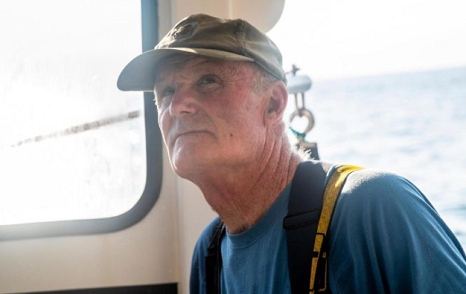
One man’s tale of lobstering 50 years in Long Island Sound – and simply loving it
John German hunted the delectable red crustacean for five decades. But as he motored his 40-foot boat, the Suzanne Marie, out of Mount Sinai Harbor at dawn Wednesday, he wasn’t looking for lobster. He was fishing for conch, a spiral-shelled mollusk beloved in Asia. The lobsters are nearly gone — and with them, the $100 million a year that they brought to Long Island. German, 71, is one of the last of the Long Island lobstermen, a group that once numbered as many as 700 but now counts only about a dozen members. The rough ride has been blamed on mostly warming waters and what folks call “the die-off,” the death of millions of lobsters in 1999 that lobstermen attribute to a concentration of mosquito insecticide that made its way into the sea. >click to read<07:04
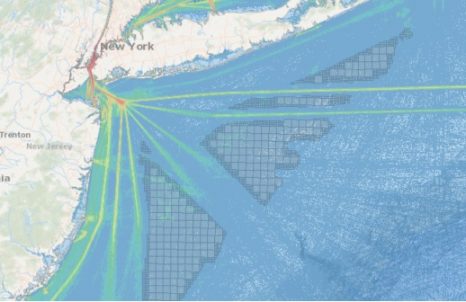
East End forum on potential offshore wind turbine sites turns tense
A public forum on potential offshore wind farm sites turned tense as East End commercial fishing representatives railed against the renewable energy source and its potential impact on their industry. The forum, held Wednesday at the Montauk Community Center, was dominated by commercial fishermen who largely said none of the proposed sites were fitting. “These should be removed off our fishing grounds completely,” said Bonnie Brady, executive director of the Long Island Commercial Fishing Association. Those who spoke declined to suggest the western sites as appropriate, saying they didn’t want to hurt colleagues’ livelihoods either. >click to read<13:56
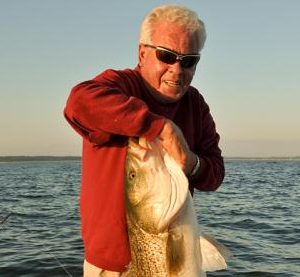
At 75, Capt. John Rade Still the ‘High Hook’
A survey probably isn’t needed, but if you ask just about any experienced fisherman who shuffles along in his or her weathered oilskins and deck boots among the well-used docks and boats of Montauk Harbor who is the king of rod-and-reel commercial fishing (a “pinhooker” in local slang), most are likely to agree that John Rade, better known as Johnny, is the one who wears the crown. The legend of Captain Rade’s unique ability to catch fish runs long and deep, more than half a century on the water to be precise, and at the age of 75, he is still at the top of his game. In commercial dockside talk, he is “high-hook” for the large catch of fish he packs out for market almost every day in season. >click to read<08:02
“We have Fishermen in my District Fighting to Survive.” Rep. Zeldin House floor speech in support of Long Island fishermen

Broken Promise? – Thiele And Lavalle call on N.Y. State to keep Promise, File Legal Action Against Inequitable Federal Fishing Quotas
Assemblyman Fred W. Thiele, Jr. and State Senator Kenneth P. LaValle today called upon New York State to keep its promise to the state’s commercial fishermen and bring litigation immediately to strike down the inequitable and discriminatory fluke quotas that are crippling the economic viability of the state’s commercial industry. This week, the State Department of Conservation announced that the fluke fishery would be closed in state waters until the end of the month and would then re-open with a paltry harvest limit of 50 pounds per day. In 2013, Governor Cuomo visited Montauk and promised to sue the federal government over the state’s low share of the East Coast fluke fishery. That promise was reiterated again by the Governor in late 2017. This spring, instead of bringing litigation, the state filed a petition with the U.S. Department of Commerce protesting the quota. >click to read<17:19
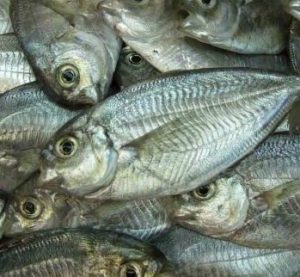
House kills Rhode Island’s push to join mid-Atlantic fishery council
The House on Wednesday rejected a push from Rep. Jim Langevin to let his state join the Mid-Atlantic Fisheries Management Council, which regulates several species of fish that are caught mostly by fishermen from Langevin’s home state of Rhode Island. The amendment would have added two seats on the 21-seat council for the state of Rhode Island. But after explaining why his state should join the group, the House rejected Langevin’s amendment in a voice vote, and Langevin, a Democrat, didn’t demand a recorded vote. Langevin also pointed out a precedent on the issue in North Carolina, which was added to the council in 1996 for similar reasons. >click to read<12:14
House of Representatives – Debate and Passage of HR-200
July 11, 2018 House Session The House meets with debate scheduled on a fisheries management bill sponsored by Rep. Don Young of Alaska. >click to watch<20:52
House votes to overhaul fishery management law – “I’m proud to say that my bill protects our commercial and recreational fisheries’ interests and allow councils to do their jobs in a more streamlined and effective manner,” Rep. Don Young (R-Alaska), the bill’s sponsor, said on the House floor. >click to read<21:41
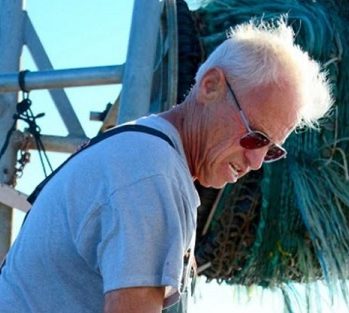
NYDEC halts commercial fluke fishery for about two weeks, sets harvest limit
New York State will close its commercial fishing grounds, a staple of the Long Island fishing fleet, for about two weeks effective Sunday. The closure, which applies to fishing in state waters up to 3 miles from shore, will last until month’s end, when it reopens with a harvest limit of 50 pounds per day. Local commercial fishermen, who dealt last month with a similar closure of another plentiful staple in New York waters of black sea bass, say the closure is another blow to their livelihood at a time of pricing stresses and amid state pressure to ease federal restrictions. “It really hurts us,” said Phil Karlin,,, >click to read<13:46

New law ‘turns on the spigot’ at old plant that treats wastewater on Delaware River
A South Jersey company could soon again be processing millions of gallons of hazardous wastewater and dumping the residue into the Delaware River thanks to a bill signed into law by Gov. Phil Murphy. The measure updates the definition of what an existing hazardous waste facility is under state law, basically grandfathering in Chemours’ wastewater treatment plant in Carneys Point, enabling it to possibly resume again accepting outside waste to treat. During the multi-step process, solids are removed and the cleaned water is dumped into the nearby Delaware River. >click to read<08:58

Trump Effort to Lift U.S. Offshore Wind Sector Sparks Interest from Europe
The Trump administration wants to fire up development of the U.S. offshore wind industry by streamlining permitting and carving out vast areas off the coast for leasing – part of its ‘America First’ policy to boost domestic energy production and jobs. The Europeans have taken note. The drive to open America’s offshore wind industry has attracted Europe’s biggest renewable energy companies, who see the U.S. East Coast as a new frontier after years of success across the Atlantic.,,, “This would be American produced energy, and American jobs,” said Vincent DeVito, energy policy advisor to Interior Secretary Ryan Zinke. “It fits well with the America First agenda.” >click to read<14:32
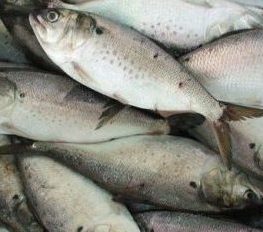
A Political Fish Tale That Could Bait Trump
A fish story isn’t one without a bit of exaggeration. Consider menhaden: A bony, little fish used for bait and to make fertilizer, animal feed, dietary supplements and lipstick, it is vital to marine ecology as a bottom-of-the-food-chain staple for other creatures, finned and winged, and as an oceanic janitor, scrubbing waters clean of algae. And menhaden is the protagonist in an economic and political tale that could lead to a confrontation between President Trump and the state that denied him a sweep of the South in 2016: Virginia.,,, And this fish story includes a little-noticed and rare breach between Gov. Ralph Northam and his predecessor, fellow Democrat Terry McAuliffe,,, Racing to the exits, McAuliffe, whose political action committee received $15,000 from Omega in 2017, initiated an appeal to the Atlantic States Marine Fisheries Commission to forgo the new restriction. >click to read<12:24
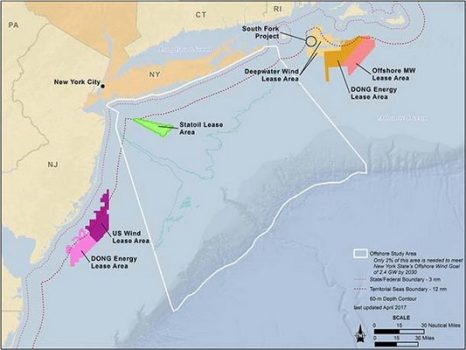
Reckoning Day for the South Fork Wind Farm is upon us.
Though it’s been the subject of numerous public hearings and board meetings for two years — not to mention endless conjecture and innuendo — Deepwater’s Wind’s offshore wind farm is still in its infancy. Deepwater’s proposal has become controversial and contentious. Some environmentalists question the cost of the project. Fishing groups fear the turbines and underwater cable will harm some fish species and disrupt fishing around the turbines. Bonnie Brady, executive director of the Long Island Commercial Fishing Association and a board member of the Center for Sustainable Fisheries, has been an early and persistent opponent. >click to read<10:59
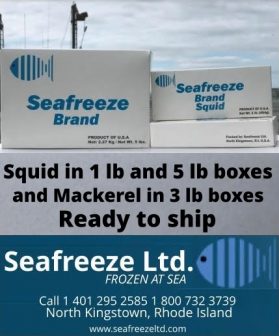
Always Top Quality! Your Seafreeze Ltd. Preferred Price Sheet for July 2018 Has Arrived!
Contact our sales team today @ 401 295 2585 or 800 732 273 For the complete price list from Seafreeze Ltd., >Click here< – We are Direct to the Source-We are Fishermen-We are Seafreeze Ltd! >Click here< to visit our website! 10:51
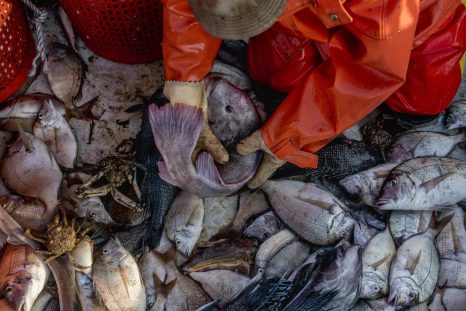
Blue Moon Fish – New York Couple Happy as Clams Selling Fish Direct to the Public
Alex and Stephanie Villani enjoy an enviable life. They live in a beautiful, secluded home with a big pool on Long Island’s idyllic North Fork. They set their own work hours and answer to no one. They spend two months every winter in the Florida Keys. And how do they pull it off? They fish for a living. Literally. Their income derives from their daily catch in the Long Island Sound, which they sell at farmers markets in Brooklyn and Manhattan. Unlike most local fishing operations that eke out a meager living selling their catch to wholesalers, the Villanis sell direct to the public—and command a lot more for their fish. >click to read<14:09






